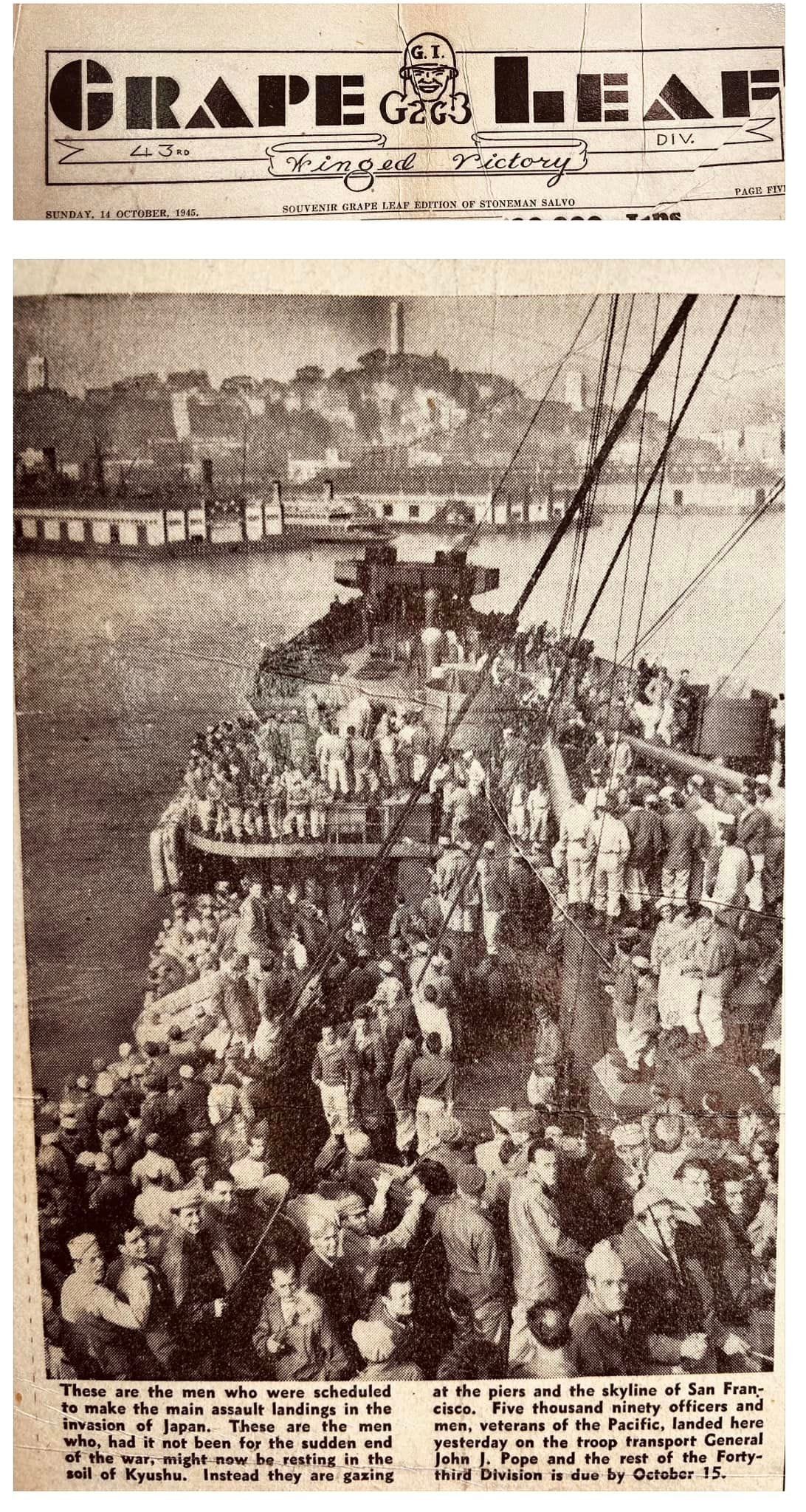Reflections on Oppenheimer, Ordinary Soldiers and the Atomic Bomb
Today marks the anniversary of the bombing of Hiroshima, August 6, 1945.
Today marks the anniversary of the bombing of Hiroshima, August 6, 1945. Yesterday, I ventured out to the theater to watch the newly-released film Oppenheimer, which shows how scientists wrestled with the ethical questions of the atomic bomb, and even came to oppose the nuclear proliferation of the early Cold War.
For the ordinary soldiers fighting in the Pacific, August 5, 1945 was just another day. On this day before the bombing, my maternal grandfather, Pfc. Fred Rish, wrote to his brother Linton with these words from Luzon, Philippines: “It’s the same old army grind. Sure hope this old war ends within another year.” Of course, he no idea of the work that was being done at the Manhattan Project that would lead to VJ Day just a week later. Although he had written multiple letters a month since joining the army in mid 1944, this is the only known letter from August of 1945. His next letter comes in late September from occupied Japan.
The use of the atomic bombs remains controversial. While we don’t how many would have died had the war continued, a ground invasion of Japan would have soon occurred. As this October 14 edition of the Stoneman Salvo reports, the 43rd Infantry (my grandfather’s division) would have been among the first in the ground invasion. Instead, they spent a month or so on occupation duty, then returned to Camp Stoneman, CA by mid October. My grandparents had four children; only my mom was born after the war.





